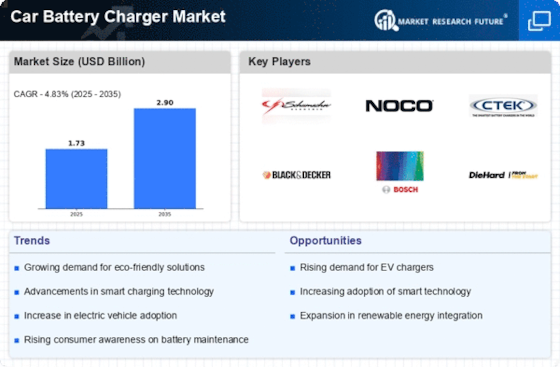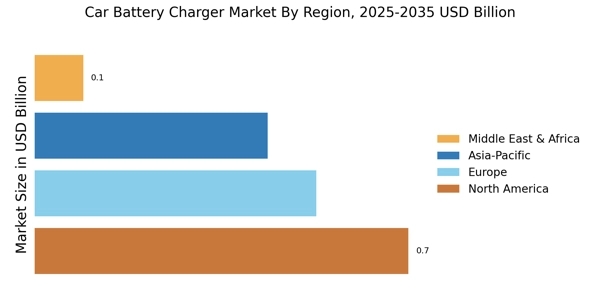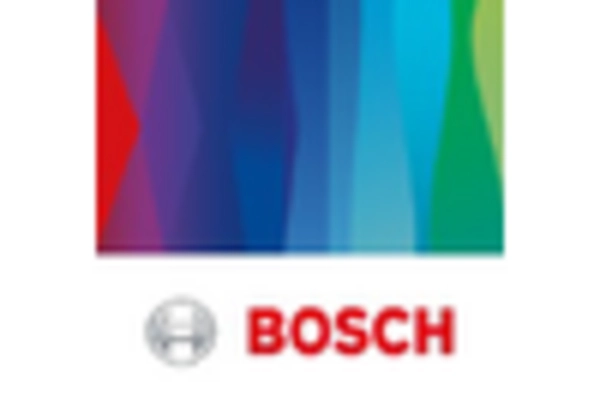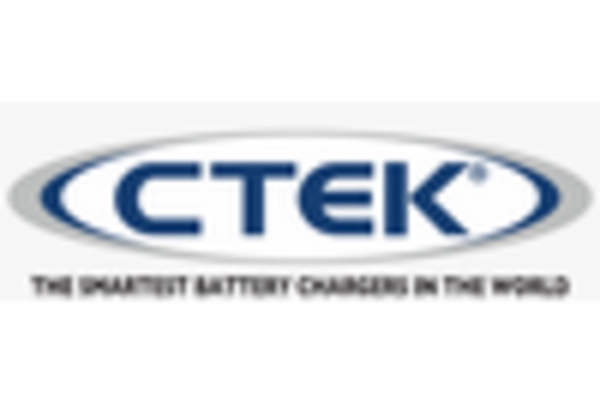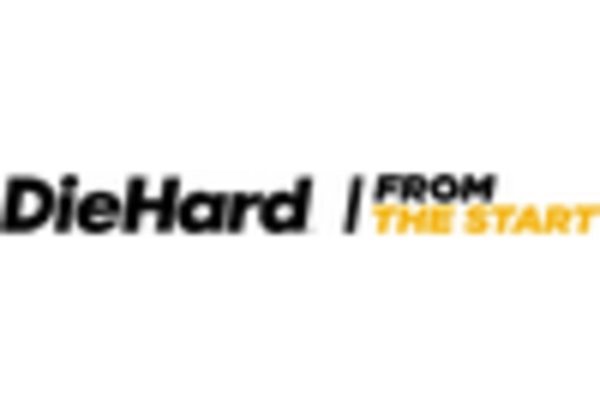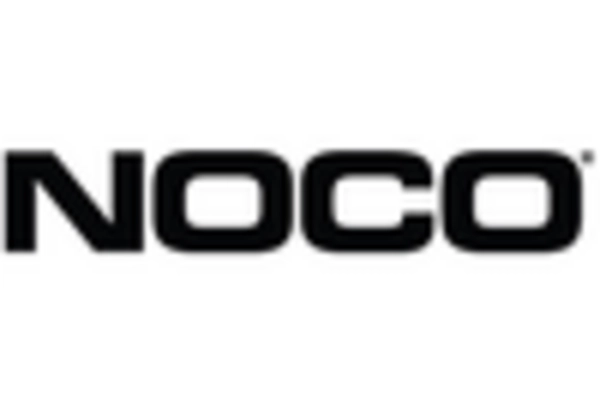Growing Electric Vehicle Adoption
The Car Battery Charger Market is significantly influenced by the increasing adoption of electric vehicles (EVs). As more consumers transition to EVs, the demand for compatible charging solutions rises correspondingly. Data indicates that the number of electric vehicles on the road is expected to reach millions in the coming years, necessitating a robust infrastructure for battery charging. This surge in EV adoption is prompting manufacturers to develop specialized chargers that cater to the unique requirements of electric vehicles. Consequently, the market is likely to witness a substantial increase in investment aimed at enhancing charging capabilities, thereby driving growth in the Car Battery Charger Market.
Regulatory Support for Automotive Innovations
Regulatory frameworks are playing a crucial role in shaping the Car Battery Charger Market. Governments worldwide are implementing policies that encourage the development and adoption of advanced automotive technologies, including battery charging solutions. Incentives for electric vehicle purchases and investments in charging infrastructure are becoming more common, which in turn stimulates demand for car battery chargers. Furthermore, regulations aimed at reducing carbon emissions are pushing manufacturers to innovate and produce more efficient charging systems. This supportive regulatory environment is likely to foster growth in the market, as companies align their product offerings with governmental objectives, thereby enhancing their competitive edge.
Rising Consumer Awareness of Battery Maintenance
Consumer awareness regarding battery maintenance is becoming a pivotal driver in the Car Battery Charger Market. As individuals become more informed about the importance of maintaining battery health, the demand for reliable charging solutions is increasing. Educational campaigns and information dissemination have led to a greater understanding of how proper charging can extend battery life and improve vehicle performance. This heightened awareness is likely to result in a shift towards purchasing high-quality chargers that offer advanced features such as automatic shut-off and trickle charging. Market data suggests that this trend could lead to a significant uptick in sales for premium charger brands, reflecting a growing consumer preference for quality over cost.
Technological Advancements in Charging Solutions
The Car Battery Charger Market is experiencing a notable shift due to rapid technological advancements. Innovations such as smart chargers, which utilize microprocessor technology, are enhancing charging efficiency and user convenience. These devices can automatically adjust the charging rate based on battery condition, thereby prolonging battery life. Furthermore, the integration of mobile applications allows users to monitor charging status remotely. According to recent data, the market for smart chargers is projected to grow significantly, indicating a shift in consumer preferences towards more sophisticated charging solutions. This trend not only reflects the evolving needs of consumers but also suggests a competitive landscape where manufacturers must innovate to maintain market share.
Expansion of Retail and Online Distribution Channels
The Car Battery Charger Market is benefiting from the expansion of both retail and online distribution channels. As consumers increasingly turn to e-commerce for their purchasing needs, manufacturers are adapting their strategies to ensure availability across multiple platforms. This trend is particularly evident in the rise of online marketplaces, which provide consumers with a wider selection of products and competitive pricing. Additionally, traditional retail outlets are enhancing their offerings by including a variety of car battery chargers, catering to diverse consumer preferences. This dual-channel approach not only increases accessibility but also fosters competition among brands, potentially leading to better pricing and innovation in the market.


